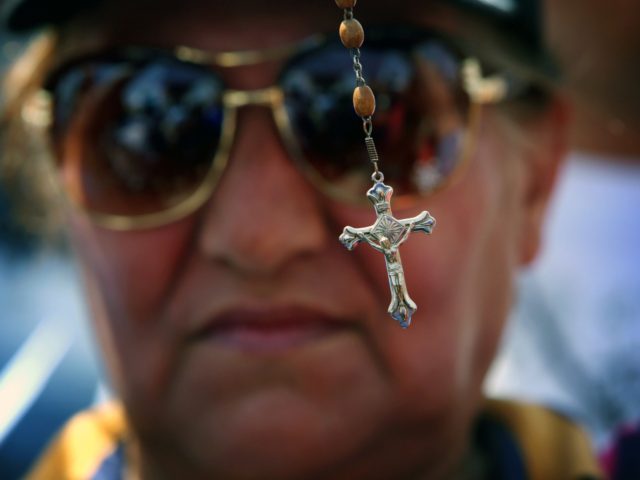Christian persecution around the globe reached an unprecedented level in 2020, with over 340 million Christians facing “high levels of persecution,” Open Doors revealed Wednesday with the publication of World Watch List 2021.
Open Doors publishes its World Watch List every January, chronicling how many followers of Jesus are targeted, discriminated against, persecuted and attacked for their faith around the globe.
This year’s World Watch List reveals that one in eight Christians worldwide experiences high levels of persecution and discrimination — far more than any other religion — while providing an in-depth look at the 50 countries where it is most difficult and dangerous to be a Christian.
Countries are ranked by the severity of persecution of Christians, calculated by analyzing the level of violent persecution plus the pressure experienced in five spheres of life.
Over the last year some 4761 Christians were killed around the world (an average of 13 every day), 4277 were arrested without trial and imprisoned (11 each day), and 1710 were abducted (4 per day).
More attacks on Churches https://t.co/UFIgyDjbH9
— Breitbart News (@BreitbartNews) January 3, 2021
According to the director of Open Doors Italy, Cristian Nani, there are nine primary “drivers” of persecution: radical Islam, communist and post-communist oppression, religious nationalism, ethnic antagonism, tribal oppression, denominational protectionism, secular intolerance, dictatorial paranoia, and organized crime.
Unsurprisingly, in eight of the top ten nations for Christian persecution the majority religion is Islam. Four of the top ten countries are in Africa, four are in Asia, and two are in the Middle East.
For the twentieth year running, the most acute persecution of Christians occurs in North Korea, driven by a virulent atheistic Communist ideology which views the estimated 400,000 Christians as traitors of the state because their allegiance is to God, not to supreme leader Kim Jong-un. Moreover, they also form part of the lowest “hostile class” in the country’s social stratification system called Songbun.
Being discovered as a Christian is a death sentence in North Korea and if you aren’t killed on the spot, you will be taken to a labor camp as a political criminal, the Watch List notes. Kim Jong-un is reported to have expanded the system of prison camps, in which an estimated 50,000-70,000 Christians are currently confined, where inmates suffer horrific conditions, including starvation and physical and mental abuse.
“The COVID-19 pandemic has certainly increased persecution for Christians abroad, especially in places like India and the Middle East, where Christians are experiencing relief discrimination solely because of their religious identity." https://t.co/QwOb4PEAV5
— Breitbart News (@BreitbartNews) December 27, 2020
The mere possession of a Christian Bible in North Korea is grounds for arrest, torture, and life imprisonment in a labor camp, which means a death sentence. Open Doors has monitored global Christian persecution since 1992 and launched its Watch List in 2002, which has been topped by North Korea every year.
In second place is the Islamic Republic of Afghanistan, where Christians are also seen as traitors, but traitors to Islam rather than to an atheist state. The country is 99 percent Muslim, with some 90 percent Sunni and the other 9.7 percent Shia. Open Doors reports the radical Islamic Taliban continues to increase in strength, rendering the lives of the few thousands of secret Christians forfeit.
In Afghanistan, “living openly as a Christian is impossible,” the Watch List states, and Christian converts face dire consequences if their new faith is discovered.
As a result, converts to Christianity have two options: flee the country or risk being killed. According to Afghan law, citizens may not become Christians and conversion is seen as apostasy as well as treason, and converts are often killed by their family, clan, or tribe.
Following North Korea and Afghanistan, Somalia, Libya, and Pakistan rank as numbers 3, 4, and 5 on the Watch List, with Eritrea, Yemen, Iran, Nigeria, and India filling out the top ten.
Nigeria has found its way into the top ten this year for the first time, thanks to the increasing violence toward Christians fueled by the Islamic extremism of the Boko Haram terror group in the north and the militant Fulani raiders in the Middle Belt region and elsewhere.

COMMENTS
Please let us know if you're having issues with commenting.